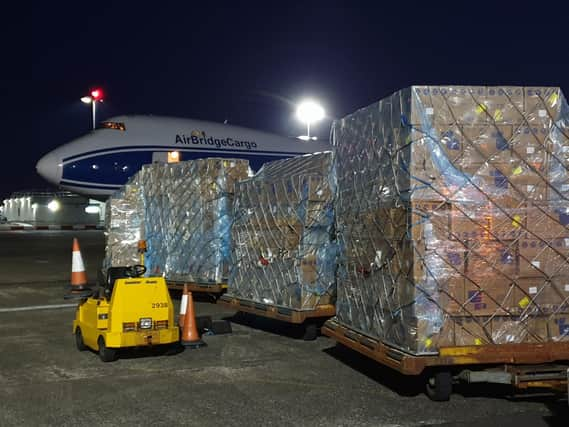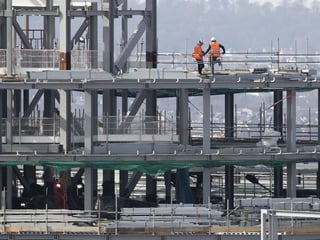Coronavirus pandemic has broken global supply chain, so it's time for 'new normal' – Professor Harry Burns


It is becoming increasingly likely that life in our world will never be the same again after this pandemic. A great many people have lost loved ones and the pain of loss has often been made worse by not being able to say farewell.
Many businesses will not survive lockdown and our towns and cities may see favourite shops, bars and restaurant closing for good. Jobs will be lost and some will struggle to get new jobs. Enforced proximity in the home may put a strain on relationships with consequences for children and families.
Advertisement
Hide AdAdvertisement
Hide AdWe are living in desperate times. However, perhaps we owe it to the memory of those who have died and to those who have struggled with the consequences of lockdown to try to make our society a better place. How might we do that? One way would be to build on the fact that we now realise the people we depend on are not the multimillionaire business owners. Most of the people currently making our lives worthwhile are those at the other end of the economic spectrum.
Most obviously, health and care workers are seen as the heroes of the pandemic. I know from personal experience how stressful work in intensive care can be. However, nothing we have experienced before compares with current events. Many of the staff in ICU may be at risk of suffering from symptoms of post-traumatic stress syndrome. Making life or death decisions several times a shift has consequences for those making the decisions as well as the patients.
What this emergency has shown, however, is just how much we depend on a wide range of people whose work we usually take for granted. We now realise that the shelf stackers and check-out assistants in our supermarkets, our hairdressers and delivery drivers are among the many unsung heroes who are central to making day-to-day life manageable.
A smile and a wave
The value of their contribution to our society has been underestimated. Our sense of well-being depends on fresh air, walks in parks and the countryside. It’s only when we can’t access the things we take for granted, that we miss them. We are all looking forward to the end of lockdown and life returning to ‘normal’. Perhaps we should see this crisis as an opportunity to create a ‘new normal’.
I live in the country. On my daily one-hour walks, I pass other walkers. Everyone I pass, at an appropriate distance, gives a smile, and a wave. There is a sense of community that wasn’t there before lockdown.
People are supporting local businesses that are still open. Amazon might be doing good business but so are local shops doing home delivery. Even our local garden centre has started doing click and collect. Our local producers will benefit in future from a greater sense of loyalty in the community.
The environment is also benefitting from the shutdown of many forms of travel. We are likely to do far less travel as we join many more meetings on Zoom and Skype.
There is anxiety that lockdown is damaging our economy but even here there might be an opportunity to emerge stronger. The UK once had one of the biggest chemical industries in the world. Now, we have a shortage of chemicals for testing. We are buying PPE from Turkey and China.
Advertisement
Hide AdAdvertisement
Hide AdWe should be self-sufficient in these areas, instead of relying on a supply chain which has broken under the strain of a pandemic. Perhaps economic revival should involve Scotland building a future in which it invests in locally based industries, employing local people.
Professor Sir Harry Burns is director of global public health at Strathclyde University
Comments
Want to join the conversation? Please or to comment on this article.
